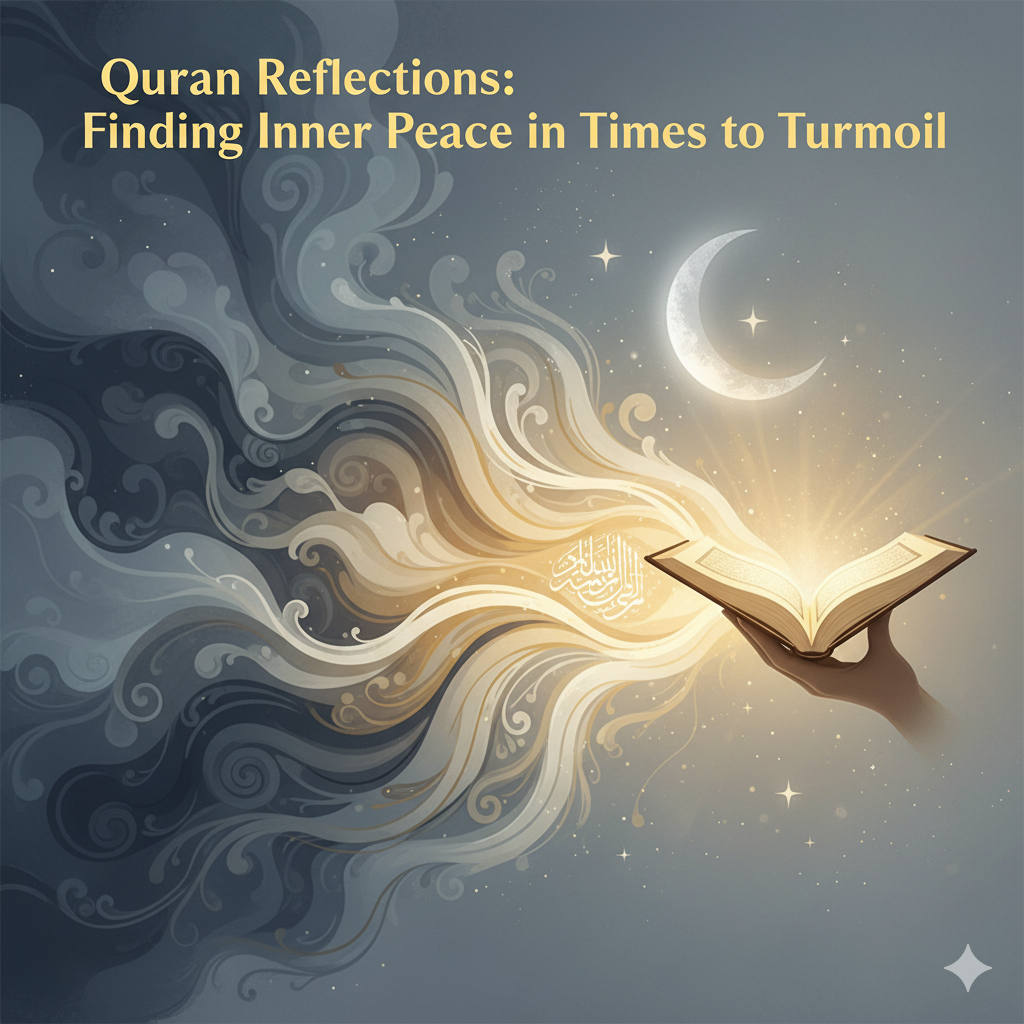Table of contents [Show]
- The Story of Prophet Ibrahim (AS): Faith and Sacrifice
- The Hijrah: Migration of the Prophet ﷺ
- The Story of Bilal ibn Rabah: From Slavery to Honor
- The Battle of Badr: A Triumph of Faith
- The Story of Khadijah (RA): The First Believer
- The Treaty of Hudaybiyyah: Patience and Strategy
- The Story of Salahuddin Al-Ayyubi: The Liberator of Jerusalem
- The Golden Age of Islam: Knowledge and Civilization
- Why Stories of Islamic History Matter Today
- Practical Reflections for Modern Life
- Conclusion
The Story of Prophet Ibrahim (AS): Faith and Sacrifice
Prophet Ibrahim’s life is one of the greatest examples of unwavering faith. His story teaches us that true submission means placing Allah above all else.
When ordered to leave his family in the barren desert, Ibrahim obeyed, trusting Allah’s wisdom. When commanded to sacrifice his beloved son Ismail, he submitted without hesitation. His life became a living definition of Islam—submission to Allah.
Lessons:
- Trust Allah even when you cannot see the outcome.
- True faith requires sacrifice.
- Sincerity in worship brings eternal legacy.
This legacy is honored each year during Hajj and Eid al-Adha, reminding Muslims of the courage to place Allah above worldly attachments.
The Hijrah: Migration of the Prophet ﷺ
The migration from Makkah to Madinah is one of the defining moments of Islamic history. The Prophet ﷺ and his followers left behind their homes, wealth, and comfort to preserve their faith.
The Hijrah was not simply a change of location—it was the beginning of an Islamic society founded on justice, unity, and worship.
Lessons:
- Faith may require leaving comfort zones.
- Brotherhood and community are the foundation of strength.
- Hardship can be the doorway to greater opportunities.
Even today, the Islamic calendar begins with the Hijrah, symbolizing that true success is measured not by wealth or power, but by living for Allah’s sake.
The Story of Bilal ibn Rabah: From Slavery to Honor
Bilal was an Abyssinian slave who embraced Islam in its earliest days. His master tortured him brutally to make him renounce his faith, but Bilal endured, repeating “Ahad, Ahad” (One, One), affirming the Oneness of Allah.
Eventually, he was freed and became the first muezzin, chosen by the Prophet ﷺ himself to call believers to prayer.
Lessons:
- Islam abolished racial superiority—faith, not lineage, defines honor.
- True freedom lies in worshiping Allah alone.
- Steadfastness in belief brings dignity in this world and the next.
Bilal’s story remains a beacon against racism, oppression, and arrogance.
The Battle of Badr: A Triumph of Faith
In 624 CE, a small group of around 313 Muslims faced a well-armed Quraysh army of over 1,000. By worldly standards, they stood no chance. Yet Allah granted them victory at Badr.
This battle was not just military—it was spiritual. It proved that reliance on Allah, not numbers or weapons, decides the outcome.
Lessons:
- Victory comes from Allah, not human strength.
- Faith and unity can overcome overwhelming odds.
- The believer must never despair when facing challenges.
Badr reminds us that when believers stand firm with sincerity, Allah sends unseen help.
The Story of Khadijah (RA): The First Believer
Khadijah, the wife of the Prophet ﷺ, was the first to accept Islam. A successful businesswoman and devoted wife, she supported the Prophet through the most difficult years of his mission.
She provided emotional, financial, and spiritual strength, becoming a pillar in the foundation of Islam.
Lessons:
- Women play vital roles in Islamic history.
- Supporting truth requires sacrifice and courage.
- A strong partnership strengthens faith and mission.
Her legacy shows that every believer—man or woman—has a role in building a community of faith.
The Treaty of Hudaybiyyah: Patience and Strategy
When the Prophet ﷺ and his companions sought to perform Umrah, they were blocked by the Quraysh. Instead of fighting, they agreed to a treaty that seemed unfavorable to Muslims at the time.
Yet this treaty allowed Islam to spread peacefully, and within two years, thousands embraced the faith.
Lessons:
- Patience often leads to greater victory.
- Strategic compromise is not weakness—it can be strength.
- Trust Allah even when outcomes seem delayed.
The Treaty of Hudaybiyyah teaches us that apparent setbacks can be divine setups for future success.
The Story of Salahuddin Al-Ayyubi: The Liberator of Jerusalem
Centuries later, Islamic history witnessed Salahuddin, a leader known for both strength and mercy. He liberated Jerusalem from Crusader control, not with cruelty, but with justice.
Unlike his enemies, he allowed Christians and Jews to live in peace under Muslim rule. His character combined courage with compassion, earning respect even from adversaries.
Lessons:
- True leadership is rooted in justice and mercy.
- Victory is not only in conquest but in moral conduct.
- Upholding Islamic values wins hearts, not just battles.
Salahuddin remains an inspiration for leaders who seek to combine faith with responsibility.
The Golden Age of Islam: Knowledge and Civilization
From the 8th to 13th centuries, the Muslim world became a hub of science, philosophy, art, and medicine. Cities like Baghdad, Cordoba, and Cairo thrived with libraries, universities, and innovation.
Scholars such as Ibn Sina (Avicenna), Al-Khwarizmi, and Al-Ghazali made contributions that shaped both Islamic and global civilization.
Lessons:
- Islam encourages seeking knowledge.
- Faith and reason complement each other.
- A society built on learning thrives beyond generations.
This golden age reminds us that Muslims, when connected to their faith, become leaders in every field of knowledge.
- Identity: They remind us who we are and where we come from.
- Guidance: They provide moral and spiritual lessons.
- Resilience: They show that trials are part of the believer’s journey.
- Inspiration: They encourage us to live with courage and conviction.
Practical Reflections for Modern Life
- Facing Racism? Remember Bilal’s dignity through Islam.
- Overwhelmed by Challenges? Recall Badr and Allah’s unseen help.
- Building a Family? Take Khadijah and the Prophet ﷺ as models of love and faith.
- Leadership? Learn from Salahuddin’s balance of strength and mercy.
- Pursuing Knowledge? Follow the scholars of the Golden Age.
Conclusion
Islamic history is not just about the past—it is a living guide for the present and future. The sacrifices of Prophets, companions, and leaders light the way for believers today. Their stories remind us that with faith, patience, and gratitude, no challenge is too great, and no blessing should go unappreciated.
May Allah allow us to learn from their stories, embody their lessons, and carry the torch of Islam forward with sincerity and strength.
“So take warning, O people of vision.” (Qur’an 59:2)
 हिन्दी
हिन्दी








